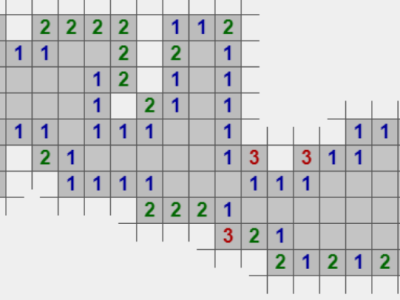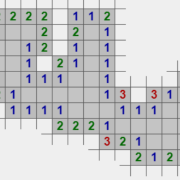
Strategy is the driving force shaping every move and every decision in the ever-changing realms of gaming and gambling. The art of strategy has a long and varied history, intertwined with human enjoyment and competitiveness. The evolution of strategy in games and gambling is a fascinating trip that follows the progress of society, technology, and our collective drive for challenge and triumph, from ancient board games to the virtual landscapes of contemporary esports.
We begin this journey by delving into the historical roots of strategic thinking, where ancient board games and early card games set the groundwork. As we progressed through the Middle Ages and Renaissance, the chessboard became a canvas for military prowess, and card games evolved from simple pleasures to sophisticated social activities and real money games. Modern card games emerged throughout the Industrial Revolution, combining with mathematical concepts to add layers of complexity to strategic play.
Post-World War II saw the introduction of strategy board games, such as Risk and Settlers of Catan, and casinos became arenas for strategic prowess. The digital age arrives, ushering in computer games that go beyond amusement, transforming them into forums for strategic mastery, and fostering the emergence of online poker, where virtual realms resonate with the clinking of strategic brains.
Esports and competitive gaming have redefined professional competition in the modern era, embracing strategic diversity across multiple genres. Simultaneously, artificial intelligence (AI) enters the gaming arena, competing against human players in chess, board games, and even poker. Ethical concerns arise, requiring a discussion on ethical gaming as well as the cognitive rewards and risks involved with strategic thinking.
Emerging technologies such as virtual reality (VR) and augmented reality (AR) promise new dimensions in gaming and gambling as we look to the future. These realms’ intertwined future, interlaced with strategy, skill, and technology, sets the setting for an exciting trip into unexplored territory.
Historical Groundwork
The voyage begins in the distant past, where ancient board games and early card games functioned as both amusement and strategic battlegrounds. From the Mesopotamian Royal Game of Ur to the Chinese classic, Go, these games were more than just recreational activities; they were reflections of cultural complexities and societal dynamics. Early card games, which emerged from medieval European courts, established the concept of chance while also leaving the potential for strategic manipulation.
The chessboard becomes a figurative canvas for military prowess during the interesting transition from the Middle Ages to the Renaissance. Chess, with its sophisticated strategy and symbolic pieces, not only entertained but also educated people about battle and politics. Simultaneously, card games underwent a Renaissance transition, evolving from simple gambling tools to sophisticated social enterprises enjoyed in both courts and salons.
Between the Middle Ages and the Renaissance
The echoes of knights and women recede, and the Industrial Revolution ushers in a new era of recreation and intellectual challenge. Modern card games, such as poker and bridge, find a home in the salons and clubs of the nineteenth century. Mathematics and strategy were intertwined with the development of probability theory, paving the way for a more measured approach to both games and gambling. As players use mathematical insights to gain an advantage, the techniques deployed at gaming tables get increasingly complicated.
From the Industrial Revolution to the Twentieth Century
The environment of strategic gaming underwent a seismic upheaval following WWII. Risk leads the push in global conquest, while Settlers of Catan introduces resource management as a vital strategic feature. Simultaneously, casinos transform into dynamic sites of strategic play, attracting professional gamblers who use a variety of strategies ranging from card counting to psychological manipulation.
The period following World War II
As the digital age dawns, video games emerge as a dominant force in entertainment, combining elements of real-time strategy (RTS) and turn-based strategy (TBS). Esports, a logical outgrowth of competitive gaming, turns video games into professional sports, with participants perfecting their strategic skills. Online poker platforms proliferate, opening up new options for strategic play, and the virtual gambling world becomes as real and challenging as the traditional casino floor.
The Digital Revolution
Esports has taken center stage in the modern landscape. Professional gaming jobs become a reality for gamers who demonstrate strategic prowess across multiple genres. Artificial intelligence (AI) integration in gaming and gambling adds a new dimension, challenging human players to adapt and develop. As we navigate these currents, ethical concerns develop, asking the industry to promote responsible gaming practices and address the cognitive benefits and possible drawbacks of strategic thinking.
Trends of the Present
Emerging technologies hold great potential for the future. VR immerses gamers in different worlds, changing gaming into an experience that extends beyond the screen. Augmented reality (AR) adds a layer of engagement by fusing the virtual and real worlds. The evolution of gaming and gambling intersects with modern technologies, presenting new opportunities and challenges.
Technologies in Development
As we negotiate the complicated and changing terrain of gaming and gambling, it becomes clear that the future is a region of endless possibilities rather than a fixed destination. The strategy will continue to define our experiences, whether in the virtual realms of esports or the augmented landscapes of future gaming. As we look ahead, the interaction of talent, chance, and technology will determine the next chapter in the evolution of strategy in games and gambling.
Navigating the Future of Gaming and Gambling Strategy
We’ve traveled through ancient board games, marveled at the strategic genius of chess, and observed the metamorphosis of casinos into theaters of calculated danger in our investigation of strategy’s evolution. The digital age gave birth to video games, esports, and online poker, each of which required a distinct set of strategic talents. As we look to the future, emerging technologies such as virtual reality (VR) and augmented reality (AR) promise to revolutionize our gaming experiences.
Reflecting on this voyage, it is evident that strategy is a dynamic force sewn into the fabric of human leisure, rather than a static concept. The evolution of strategy in games and gambling follows our cultural progress, technical advancements, and the never-ending human drive for strategic mastery, from the intellectual challenges of chess to the calculated risks of poker. The balance between ability, chance, and technology will continue to influence the landscape as we traverse the interconnected future, inviting us to explore new aspects of strategic play.
















